Here you can:
Investigate the
links between air
pollution and
dementia.
Harness your passion for improving public health.
At DEOHS, you can:

Study how the air we breathe affects the aging brain, cognitive decline and dementia risk (the PhD dissertation of Rachel Shaffer, pictured above)
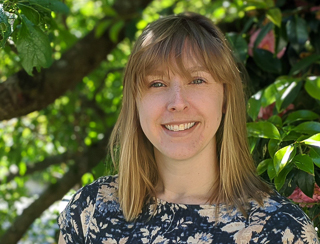
Examine the neurological effects of chronic exposure to toxins in our environment.
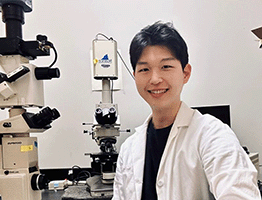
Explore the connections between chemical exposures early in life and the microbiome.
Why study environmental toxicology?
Environmental toxicologists study how chemicals affect human health and the environment, applying principles of biology, chemistry and epidemiology. Toxicologists predict where chemicals will end up in the environment and in our bodies, analyze the toxic impact of chemicals and monitor exposure limits to keep us and our environment healthy.
.
As a student focusing on Environmental Toxicology, you will:
- Choose to earn your MS, MS Applied or PhD degree in Environmental Health Sciences.
- Take common core courses introducing foundational concepts and skills, including: risk assessment, management and communication; assessment and management of exposures to environmental hazards; core principles of toxicology; and how to use a One Health approach to address complex challenges.
- Learn how a wide range of toxicants (such as pesticides, metals, solvents, air pollutants, persistent organic pollutants and radiation) affect human health and gain skills in identifying, characterizing and controlling environmental hazards.
- Complete a culminating experience (thesis, project or dissertation) showcasing your ability to integrate the skills you have learned to address an environmental or occupational health problem.
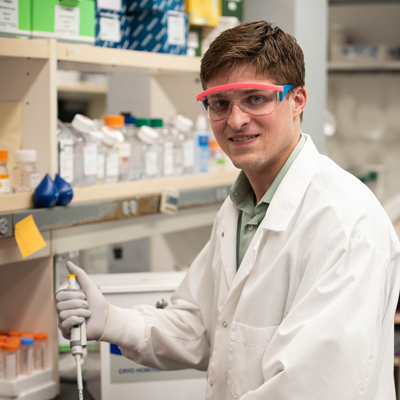
I’ve been impressed with the breadth and diversity of public health research projects and collaborations that students can participate in.
Joseph Dempsey,
PhD student in Environmental Health Sciences
Read more
Environmental Toxicology: Student research projects
Ryan Babadi
Phthalate exposure, respiratory outcomes and biomarkers of oxidative stress in children with asthma
PhD | Environmental Toxicology (Tox)
2020 | Catherine Karr
Rachel Shaffer
Fine particulate matter, neuropathologies and dementia
PhD | Environmental Toxicology (Tox)
2020 | Lianne Sheppard
Jongpyo Joe Lim
Acute and persistent effects from environmental toxicant exposure on the gut-liver axis
MS (Thesis) | Environmental Toxicology (Tox)
2020 | Yue Cui
Our faculty and research

We hypothesize that infant exposure to flame-retardant polybrominated diphenyl ethers (PBDEs) might increase the risk of diabetes by reducing beneficial substances made by gut microbes and increasing harmful substances.
Dr. Julia Cui,
Associate Professor
Read more
Research spotlight

Cadmium exposure and COVID-19
New research finds high levels of cadmium from smoking and certain foods are linked to more severe flu, pneumonia—and potentially, COVID-19
LEARN MORE
Sharing abundant knowledge
DEOHS Professor Elaine Faustman honored for her commitment to educating birth-defects researchers
LEARN MORE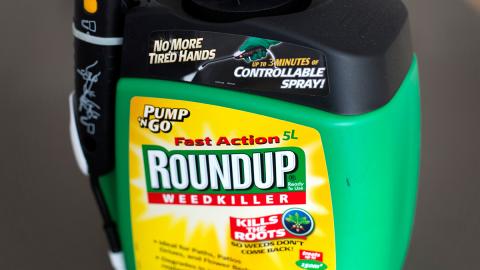
Can Roundup cause cancer?
New study from DEOHS researchers finds exposure to commonly used weed killer increases risk of some cancers
LEARN MOREOptional Elective Courses
Career pathways
Our Environmental Toxicology graduates work in the public and private sectors and in academia. Recent DEOHS graduates work as:
- Senior Toxicologist at Boeing.
- Public Health Toxicologist at the Oregon Health Authority.
- Postdoctoral Fellow at the National Oceanic and Atmospheric Administration.
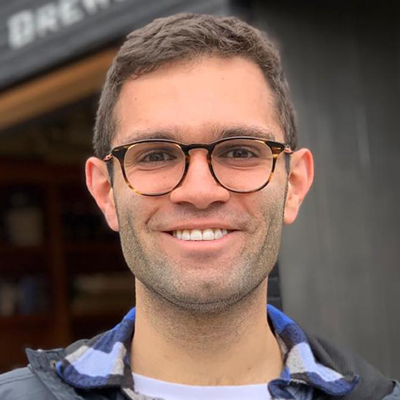
Alumni profile
I graduated with a core toxicology skill set, which I use daily to help our clients and guide them through the regulatory process.
Tyler Nicholas,
Toxicologist at Exponent, a scientific and engineering consulting firm
Read more